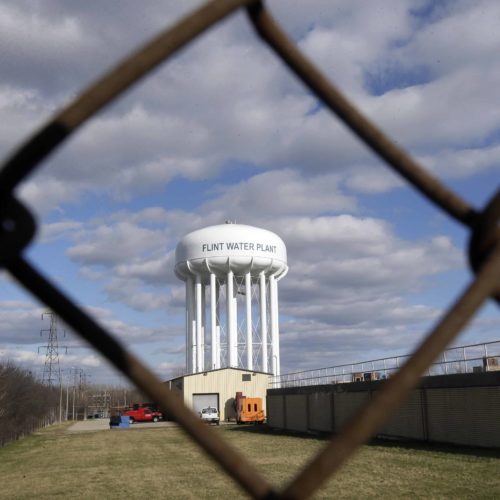Introduction
Are you a health worker, medical provider, COVID-19 patient, or federal employee on the front lines of the pandemic? We want to hear from you. Email us tips@publicintegrity.org.
After the Flint water crisis, Michigan’s governor formed an advisory council to help the state avoid future environmental injustices. A majority of the members sent her a letter this morning with a plea: Order a statewide moratorium on water shutoffs to protect the public from the fast-spreading COVID-19.
The 21-member group is so new they don’t have procedures in place yet for speaking as a council. But 14 of the members signed the letter, recommending “urgent action.”
“In order to limit the spread of COVID-19, it is recommended that people frequently wash their hands and practice social distancing,” the members wrote. “However, people without running water will be forced to leave their homes in an attempt to find water at understocked and overcrowded grocery stores putting them in close contact with hundreds of others. What limited amounts of water people are able to obtain will primarily be used for drinking and cooking. For such people, frequent hand washing is simply not an option.”
We can’t do this work without your support.
Under pressure, Detroit issued its own moratorium. But in Michigan, “few other water systems have followed suit,” the letter said. A number of other states have issued no-shutoff orders, the members pointed out.
“There’s been reporting that Detroit has had faster growth in coronavirus outbreaks than anywhere else in the country,” said Justin Onwenu, a member of the council and Detroit-based community organizer for the Sierra Club’s environmental justice program in Michigan. “It’s a very frustrating and stressful situation. … We want our government to do more.”
Repeated calls for comments to the communications office for Michigan Gov. Gretchen Whitmer rolled to a mailbox that could not accept messages because it was full. Whitmer, a Democrat, appointed the advisory council’s members in January. Onwenu said the dangerous lead contamination in Flint’s water, unknowingly consumed by thousands of adults and children, was the impetus for its creation.
Peter D. Jacobson, director of the Center for Law, Ethics and Health at the University of Michigan, agrees with the letter’s recommendation.
“We know from Flint what the consequences of bad water — or no water — are,” he said. “At a time like this, you can’t even substitute bottled water because there’s no way of distributing it without endangering other people.”
Read more in Health
Coronavirus and Inequality
These charts show who’s most vulnerable to the coronavirus
Low-income Americans already struggle to stay healthy. The coronavirus will hit them harder.
Coronavirus and Inequality
The Labor Department won’t take steps to protect health care workers from the coronavirus
The U.S. Department of Labor has rejected pressure to issue worker protections that nurses are demanding. The hospital industry wants it that way.


Join the conversation
Show Comments